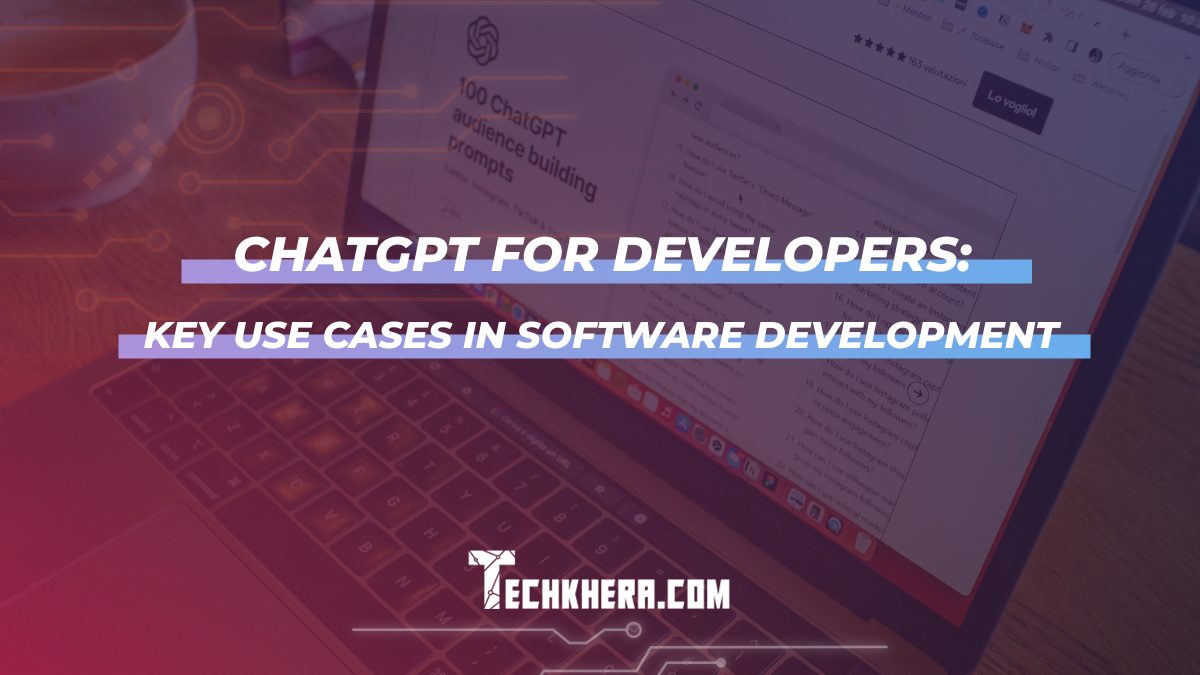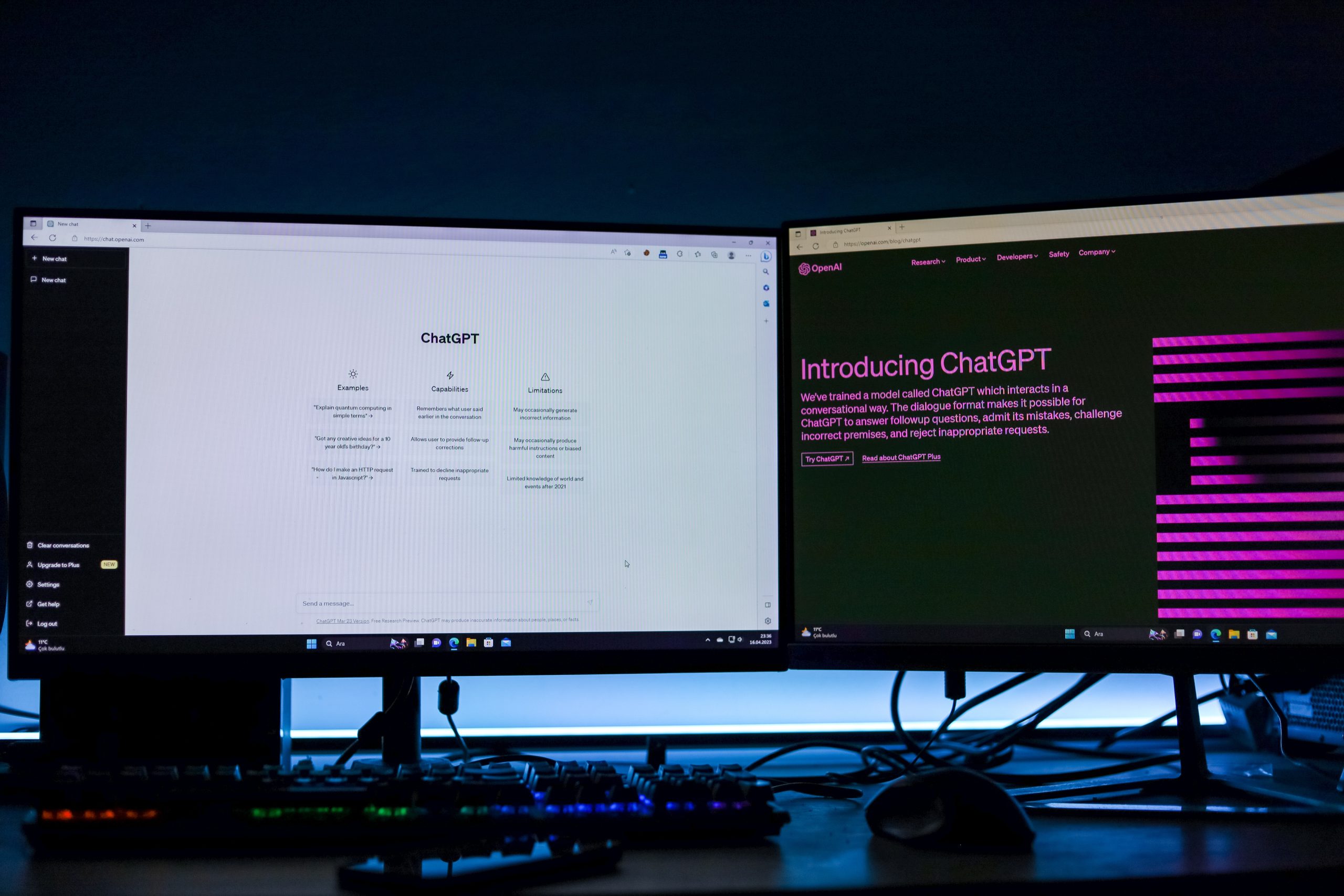
ChatGPT for Developers: Key Use Cases in Software Development
Chatbots and conversational AI have become increasingly popular in various industries, revolutionizing customer support, marketing, and user engagement. One of the leading conversational AI models that have gained significant attention in recent years is ChatGPT, developed by OpenAI. As a versatile language model based on GPT-3 architecture, ChatGPT offers numerous applications in software development, making it a valuable tool for developers. In this article, we will explore key use cases of ChatGPT in software development and how it can enhance productivity and efficiency.

Contents
- 1 1. Code Assistance and Auto-Completion
- 2 2. Debugging Support
- 3 3. Natural Language Documentation Generation
- 4 4. Generating Test Cases
- 5 5. Design and User Interface Feedback
- 6 6. Natural Language Search for Code Repositories
- 7 7. Code Translation and Cross-Language Support
- 8 8. Enhancing Natural Language Interfaces
- 9 9. Automatic Code Generation from Natural Language Descriptions
- 10 10. Custom Use Cases and Integrations
- 11
1. Code Assistance and Auto-Completion
One of the most practical applications of ChatGPT for developers is code assistance and auto-completion. By integrating ChatGPT into integrated development environments (IDEs) or code editors, developers can receive helpful suggestions and auto-complete code snippets as they write. This feature significantly speeds up the coding process and reduces the likelihood of syntax errors, allowing developers to focus on more complex aspects of their projects.
2. Debugging Support
Identifying and fixing bugs is an essential part of software development. ChatGPT can aid developers in this process by providing intelligent suggestions to troubleshoot errors and bugs. Developers can describe the problem they are facing, and ChatGPT can analyze the code and provide insights on potential solutions, helping developers save time and effort in debugging.
3. Natural Language Documentation Generation
Generating comprehensive and easy-to-understand documentation is crucial for any software project. ChatGPT can assist developers in creating natural language documentation by converting technical jargon into clear and concise explanations. This not only benefits developers by streamlining the documentation process but also aids users and other stakeholders in better understanding the software.
4. Generating Test Cases
Testing is an integral part of the software development lifecycle. ChatGPT can assist in generating test cases based on specifications provided by developers. By describing the intended behavior, developers can use ChatGPT to create test cases that cover various scenarios, ensuring thorough testing and improved software quality.
5. Design and User Interface Feedback
ChatGPT can provide valuable feedback on user interface (UI) designs and user experience (UX) decisions. Developers can describe their design concepts, and ChatGPT can simulate user interactions, offering insights into potential usability issues and design improvements. This iterative process allows developers to optimize their UI/UX before implementation.

6. Natural Language Search for Code Repositories
Searching for specific code snippets or solutions in large code repositories can be time-consuming. ChatGPT can act as a natural language search engine for code repositories, allowing developers to find relevant code examples or solutions to specific programming challenges more efficiently.
7. Code Translation and Cross-Language Support
For projects that require multilingual support or codebase translation, ChatGPT can assist in converting code from one programming language to another. Developers can describe the desired translation, and ChatGPT can generate the equivalent code in the target language, saving time and effort in manual translations.
8. Enhancing Natural Language Interfaces
ChatGPT can improve natural language interfaces in software applications by providing more sophisticated and context-aware responses to user queries. This makes the application more user-friendly and interactive, enhancing the overall user experience.
9. Automatic Code Generation from Natural Language Descriptions
With ChatGPT’s powerful language understanding capabilities, developers can describe the functionality they want to implement in natural language, and ChatGPT can generate the corresponding code. This approach is particularly useful for rapid prototyping and early-stage development.
10. Custom Use Cases and Integrations
Developers can train ChatGPT on custom datasets to tailor them to specific use cases and industries. Whether it’s for domain-specific assistance, customer support, or personalized interactions, custom-trained ChatGPT models can be seamlessly integrated into software applications to cater to unique requirements. If you are a WordPress website developer it can help you create WordPress plugins.
ChatGPT’s versatility and powerful language processing capabilities make it a valuable asset for developers in software development. From assisting in code auto-completion and debugging to generating test cases and natural language documentation, ChatGPT streamlines various aspects of the development process. By leveraging ChatGPT’s capabilities, developers can enhance productivity, improve the quality of their software projects, and create more intuitive and user-friendly applications.
As developers continue to explore the possibilities of conversational AI and natural language processing, ChatGPT remains a prominent tool to unlock innovative use cases and push the boundaries of software development. Whether you are building a small project or working on complex enterprise-level software, ChatGPT can be a valuable addition to your development toolkit, supporting you in creating robust and cutting-edge applications in 2023 and beyond.
